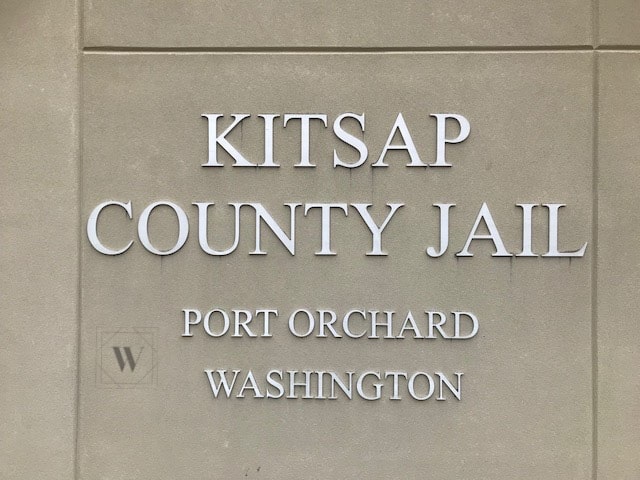
Most Americans do not fully understand the pretrial portion of our justice system. While many know you are presumed innocent until proven guilty in a court of law, most don’t realize that hundreds of thousands of Americans sit in jail waiting to have their day in court. They are not sitting in jail because they have been convicted or plead guilty. They sit in jail because they are too poor to bail out.
According to the Pretrial Justice Institute, nearly 750,000 people are held in our nation’s jails daily. Two-thirds of these people have not been convicted of a crime. Taxpayers spend approximately 38 million per day and 14 BILLION annually to house citizens waiting for trial who are mostly low risk. Pretrial inmates account for 95% of jail growth from 2000 to 2014. (see Pretrial Justice Reports—Pretrial Justice: How much does it cost? & What pretrial system look like without money bail)
Why are so many Americans sitting in jail without a conviction?
According to a report on the Economic Well-Being of US Households by the Board of Governors of the Federal Reserve System, nearly half of Americans can not afford a $400 emergency. Posting the $5,000 bail for a DUI, whether by using cash or a private bail bondsmen, is simply not possible.
Consequently, poor and working class people are held in custody while they wait for trial. As a result, they have limited hours in which they can meet with their attorney (assuming their public defender will have the time to see them in jail) and they will pay the average $1 a minute charge to use the jail phone to reach their attorney and family members.
For most, a jail stay of more than 3 days will cause catastrophic damage to their lives—losing jobs, falling behind in rent or mortgage, and negative family consequences due to stress. (see Reports from Pretrial Justice Institute) On the other hand, wealthier members of the community are able bail out, go back to work, be with family, and strategize with their attorney prior to making any significant decisions regarding their case.
Why do we keep people in jail if they haven’t been convicted?
In most cases, when a person is charged with a non-capital offense, the presumption is that the accused can be released on their personal recognizance during the pretrial phase. Typically, the judge will set pretrial conditions of release only where it is the interest of securing the defendant’s appearance in court, protect the community from violent crime, and prevent any obstruction of justice. These conditions do not violate the Fourth Amendment so long as they are legitimately related to the objectives of securing a defendant’s presence and public safety. In Washington, criminal Rule 3.2 and Criminal Rule for Courts of Limited Jurisdiction 3.2 govern pretrial release conditions.
Is a “bail schedule” allowed under the law?
Yes. So far, there are many counties and municipalities using “schedules” that essentially list a crime and set a standard bail amount without any independent review of whether the accused is likely to appear for court or is a risk to the community. At the first appearance or arraignment, the defendant will be permitted to argue that bail is unnecessary to secure his presence to the next hearing. This is acceptable if the judge does an independent assessment of the defendant’s unique circumstances when reviewing the interests of 1) securing the defendant’s appearance at the next hearing or trial, and 2) public safety. Unfortunately, there are some situations where the predetermined bail schedule is de facto part of the conditions of pretrial release. Under the law, this is not allowed. Furthermore, practically speaking, when a bail schedule is set unreasonably high for a misdemeanor defendant who is poor, there is almost no chance that he will be able to bail out before the initial hearing to consult with an attorney, gather evidence, or provide information from witnesses.
How Does Kitsap Measure Up?
Despite having no criminal history, no failure to appear for court dates, or risk to the community, it is very likely that a person arrested in Kitsap County for DUI will have bail set at a minimum of $5,000. If you were arrested Friday night and don’t have the money for bail, you will sit in jail until Monday’s Arraignment calendar. Unless you have criminal history or there are unusual facts, it is highly possible that you’ve served all of the jail time required for your alleged crime.
As noted above, this creates big incentive for poor people to simply plead guilty so they can get out of jail. Knowing that bail, in some amount, will remain as a pretrial release condition, a poor defendant often finds pleading guilty and going home more favorable than sitting in jail for weeks or months until the trial date. The person has a conviction now, but they also have their freedom. It’s a tough predicament.
While it is true that this can happen in other counties, some of the largest in Washington have already made great reform and no longer use bail schedules. King County, Spokane County, and Yakima County have made great strides at reform, which has saved taxpayers a significant amount of money in pretrial incarceration costs.
These counties use evidence-based assessment protocols on an individual basis to determine whether a person is a flight risk (i.e. won’t show up for court) and/or is a risk to the community. According to Pretrial Justice Institute, only 3.4 percent of citizens in Washington live in a county using a validated pretrial assessment, giving our state a C overall on the report card (factors such as pretrial detention rate, elimination of money bail, as well as other measurements are considered in grade report).
We are hopeful that Kitsap County will eventually move in the direction of reform. For now, we are unaware of any changes to the current system but, with larger counties already making changes and seeing the benefit of securing presence in the courtroom, safety in the community, and significant savings to taxpayers, it is possible Kitsap County could be next.
Variations In Surrounding Municipalities
Why the difference in setting bail for nearby cities? Well, as the saying goes, follow the money. Local municipalities must pay a fee to the county jail when a police officer from Poulsbo or Bremerton book a suspect into the jail. Think of it as a hotel charge. The law enforcement officer is taking care of business in the city limits but using the “hotel” belonging to the county. This fee comes out of the city’s overall budget. Therefore, the “culture” understood by law enforcement is to use the city budget for post-conviction incarceration rather than pretrial holding of a suspect. This is the reason many people in Poulsbo will be “cited” and released. Basically, they are given a summons to appear in court on a set date. For those facing a Poulsbo criminal charge, this will generally be the next available Wednesday. There are exceptions to this booking/bail “culture” for people who have a history of failing to appear for court, are a flight risk, or are a danger to the community, but those cases tend to be the exception.
If you are arrested in Bremerton, you will fall somewhere in between the booking rate of the County and Poulsbo. The Bremerton Police will fairly regularly book a suspect into the jail with the “bail schedule” but not as frequently as occurs in surrounding Kitsap County.
Around The Country
Despite tremendous interest in bail reform, bail schedules have yet to be ruled unconstitutional. While the practical impact of their use often leads to violations of the Equal Protection Clause and Due Process violations, they are still in use in most states. Unfortunately, the Supreme Court has yet to rule on bail schedules.
One relevant federal rulings on this issue is O’Donnell v. Harris County, 892 F.3d 147 (5th Cir. 2018), in which the Fifth Circuit reviewed how predetermined bail amounts for arrestees were adhered to in nearly 90% of first appearance determinations regarding pretrial release conditions. The Court did a very exhaustive examination of how the bail schedule actually operated, where the policies and procedures created a disparate impact for indigent defendants and also lacked any meaningful alternative considerations. The ruling tightened the lower court’s ruling directing Harris County to make immediate changes to the bail system for misdemeanor arrestees but, in a nutshell, agreeing that the bail practices by Harris County were in violation of the Equal Protection Clause and violate Due Process. It’s a long read but quite informative.
One interesting excerpt from the 193 page District Court’s ruling in O’Donnell, was the review of similar challenges in various states. These challenges have produced significant responses from a wide range of legal authorities in the form of amicus briefs, including the American Bar Association and the US Department of Justice. Below is a portion from O’Donnell, describing the ABA’s contribution to Walker v. City of Calhoun, a case arising in Georgia that was heard by the 11th Circuit.
“The American Bar Association’s amicus brief in Walker argued that “[m]onetary conditions of release should never be drawn from an inflexible schedule, should be imposed only after consideration of the defendant’s individual circumstances, and should never prevent the defendant’s release solely because the defendant is unable to pay.” Pls. Ex. 12(ff) at 12. The Third Edition of the ABA Standards for Criminal Justice, Pretrial Release (3d ed. 2007), recommend “procedures designed to promote the release of defendants on their own recognizance or, when necessary, unsecured bond.” Standard 10-1.4(a). Jurisdictions should impose financial conditions only “when no other conditions will ensure appearance,” and financial conditions “should not be employed to respond to concerns for public safety.” Standard 10-1.(4c)–(d). The Standards also emphasize that “[t]he judicial officer should not impose a financial condition of release that results in the pretrial detention of a defendant solely due to the defendant’s inability to pay.” Standard 10-1.4(e).
The American Bar Association’s brief emphasizes that “[u]nwarranted pretrial detention infringes on defendants’ constitutional rights, ‘making it difficult for the defendant to consult with counsel, locate witnesses, and gather evidence’ and placing a particularly heavy burden on ‘poor defendants and on racial and cultural minorities.’” Pls. Ex. 12(ff) at 14 (quoting Standards at 32–33). The commentary to the Standards states that “[i]f the court finds that unsecured bond is not sufficient, it may require the defendant to post bail; however, the bail amount must be within the reach of the defendant and should not be at an amount greater than necessary to assure the defendant’s appearance in court.” Id. (quoting with emphasis Standards at 43–44). The brief concludes that detaining a defendant solely for failure to pay a secured financial condition of release is unwarranted and unconstitutional. Id.”



Why unnecessary use of bail matters?
As the Pretrial Justice Institute and the Washington Pretrial Reform Task Force noted, there are disparities in legal outcomes for those unable to post a bond or bail. Individuals who were detained prior to trial were four times more likely to receive a sentence of imprisonment and three times more likely to be given a longer prison sentence. Lowencamp, C., VanNostrand, M., A.M. (November 2013) Investigating the Impact of Pretrial Detention on Sentencing Outcomes. Being poor is not a crime and, therefore, justice should not serve the poor any differently. The disparate outcomes are not acceptable in our justice system.
If you or a loved one has been arrested and need help finding a local bail bondsmen, give us a call so we can help.
Witt Law Group handles DUI and criminal defense cases in Kitsap and Thurston counties as well as cities in those areas. If you need to discuss a matter in one of our practice areas, please reach out 7 days a week. 360-792-1000

Get help now
Whether you choose to handle your case alone or engage the Witt Law Group, being informed and prepared is essential. Early involvement of an attorney can significantly impact your chances of a fair recovery, allowing you to focus on healing while we handle negotiations with insurance adjusters to secure fair compensation for your injuries.




